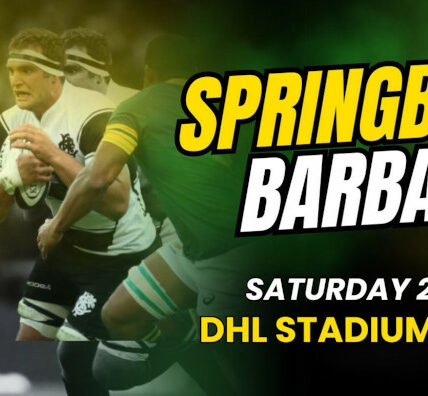It didn’t happen in a stadium. There were no ticket stubs, no crowd-roar swelling behind commentary microphones. Just a cracked patch of earth behind a sugarcane line on the edge of town. The goalposts were welded scrap metal. The chalk lines were ghost-thin. The kind of field where the rugby ball bounces funny, where a decent sprint means dodging potholes and cow dung.
And yet, to hear the way people still talk about that tackle, you’d swear it happe ned at Twickenham.
The year was vague. Somewhere between the time cellphones still had buttons and before load-shedding became a household rhythm. The players? Just local boys. Some still in school. Others who’d left too early. They played barefoot. Jerseys didn’t match. Most of them answered to nicknames no one remembers how they got.
But what they do remember is the hit.
It happened late in the second half, when everyone was already tired and half the town had wandered down to watch. The man with the ball, tall, fast, too confident for his own good, broke through the line. And from the left wing came Sipho.
No one saw him until they heard it. The thump. Like a car door slamming. Like meat hitting concrete. The kind of contact that makes even the uncles watching wince. The runner went airborne. Landed hard. The game paused. For a second, even the sun seemed to hold its breath. And then Sipho just stood up. Dusted his knees. Jogged back to position. No celebration. No chest-thumping. Just rugby. The boy who got hit? He got up eventually. Limped a little. Played on. That night, someone bought him a Coke and told him he took it like a man.
 Sipho didn’t go on to the Sharks. He didn’t even finish high school. Took a job loading crates. Then something else. Then nothing. He disappeared into the everyday. But the tackle remained. It got passed down. One of those oral legends that grows each time it’s told. Some say he knocked the wind out of three generations. Others swear the guy who got hit didn’t speak for a week. The real story doesn’t matter as much as the retelling. In a town like this, sport isn’t about careers. It’s about moments. The kind that echo.
Sipho didn’t go on to the Sharks. He didn’t even finish high school. Took a job loading crates. Then something else. Then nothing. He disappeared into the everyday. But the tackle remained. It got passed down. One of those oral legends that grows each time it’s told. Some say he knocked the wind out of three generations. Others swear the guy who got hit didn’t speak for a week. The real story doesn’t matter as much as the retelling. In a town like this, sport isn’t about careers. It’s about moments. The kind that echo.
There are towns like this across KZN. Places where rugby isn’t coached, it’s inherited. Where sidesteps are learned barefoot on gravel, and toughness is a birthright. Where the line between violence and grace is razor-thin and performed every weekend without applause.
These games shape character long before they shape talent. They teach boys how to lose with their heads high. How to stand back up when the hit hurts. How to pass the ball and the story. The formal systems, the unions, the scouts, the trials, rarely reach here. But that doesn’t matter. Because this rugby doesn’t need permission to be sacred. It just needs a ball, some space, and someone to remember.
Every year, new kids hear about Sipho. A cousin will whisper the story before a match. An uncle will point to the grass and say, “Right there. That’s where it happened.” A schoolboy will clench his jaw a little tighter at kickoff. Sometimes that’s enough.
The funny thing about legacy is that it rarely looks how you expect. Sometimes it’s not a statue, a contract, or a highlight reel. Sometimes it’s a noise that lingers. A mark on the field. A story that sticks.
And long after the tackle, the field remains. Bent grass. Rusted posts. And kids lining up, waiting to make a sound of their own.




